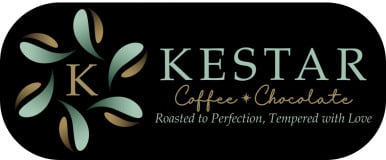Description
Processing: Anaerobic Honey; SCA Score: 88 points
Complex aromas and a creamy body with honey-like sweetness, featuring notes of melon, yogurt, and natural mango flavors.
ROAST PROFILE: Suitable for Espresso and Filter preparation.
GRINDING: Whole beans (Standard Delivery).
DEGASSING PERIOD:
-
Espresso: 10-14 days
-
Filter: 7 days
To provide you with freshly roasted coffee, at KESTAR COFFEE, coffee is roasted only on order and is available as whole beans (standard) or ground, delivered in special packaging with a degassing valve.
If you wish to receive ground coffee, before finalizing your order, please mention in the "ORDER COMMENTS" section how you prefer it: for espresso, filter, Turkish coffee, etc.

Processing: Anaerobic Honey; SCA Score: 88 points
Complex aromas and a creamy body with honey-like sweetness, featuring notes of melon, yogurt, and natural mango flavors.
Description
Located between 1,600 and 1,800 meters above sea level, Finca La Luisa is dedicated to producing and processing high-quality coffee—whether it’s washed, natural, or crafted using innovative fermentation techniques. Four years ago, owner Juan Pablo Vélez began experimenting with carbonic maceration in stainless steel tanks with CO₂ injection. From that experience, about two years ago, they developed a fruit juice fermentation method, allowing the farm to create very defined and consistent flavor profiles, while expanding their aromatic range. These processes are referred to as the fruit honey process. Thanks to the extended fermentation, you’ll find deeply complex aromas in the cup.
This special fermentation lot, infused with kiwi juice, comes from producer Juan Pablo Vélez and his farm, Finca La Luisa.
Perched at an impressive 1,720 meters above sea level, La Luisa is a 70-hectare estate located near the village of San Bernardo de los Farrallones, in Ciudad Bolívar, Antioquia region.
This particular lot was processed using a combination of anaerobic fermentation with fresh strawberry pulp, alongside the honey method.
First, ripe cherries are hand-selected, then undergo 72 hours of anaerobic fermentation in stainless steel tanks with added mango pulp. CO₂ is injected to displace oxygen, creating an anoxic environment.
After fermentation, the cherries are depulped, and—with the mucilage still intact—dried on raised African beds. The temperature is kept below 35°C until the ideal moisture content (12%) is reached.













